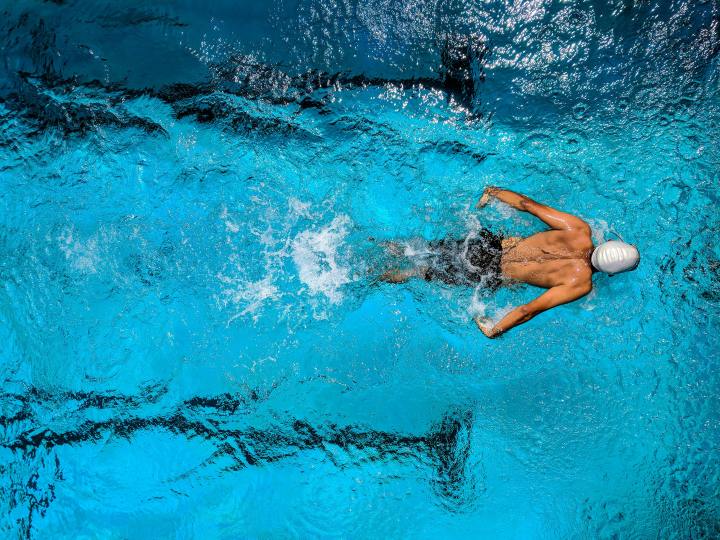* SERG PhD Opportunity [OPEN 2024] *
The Sports Engineering Research Group (SERG) at Sheffield Hallam University works closely with TeamGB sports – measuring the health and performance of their athletes. If you watch TV footage of Olympic events this summer in Paris (or are lucky enough to be there!) you will see TeamGB support staff in the stands working on laptops, analysing the performance of the athletes. Furthermore, there will be many more analysts working behind closed doors – trying to eek out any small performance improvements that will increase the chances of a TeamGB Olympic medal.
There is a high probability that the software that the analysts are using was created by SERG. Indeed, British Swimming already use our NEMO software for race analysis. Current race analysis utilises a combination of official race results with metrics manually extracted from video footage e.g. reaction time, break out time (time underwater) and average stroke rate/length time. The video analysis is typically conducted by employing a “fixed distances” or “segmental” approach where a series of reference distances or segments along the pool length are used to extract performance metrics such as “time to 5 metres” or “turn time”. This approach is granular in nature – it only extracts a subset of important performance metrics from the swim effort. However, even this low level of analysis is time consuming.
Swimming performances, training and competition, are routinely videoed by performance analysts. Many studies have evidenced that more advanced and detailed race analysis performed by biomechanics practitioners to measure kinematic variables such as angles and instantaneous velocities is more impactful to understand performance gains. However, this level of analysis is time consuming and is restricted to specific training sessions to provide technique feedback to coaches. Furthermore, it is susceptible to errors and therefore findings and conclusions on performance may be incomplete or inaccurate.
Numerous studies have illustrated the role machine learning (ML) has in automated race analysis. However, whilst the potential of machine learning models has been demonstrated for specific scenarios, no studies offer a generalised or impactful solution for race analysis.
The aim of this PhD is to develop and validate computer-vision based machine learning (ML) technologies to derive race analysis metrics in swimming and para-swimming.
This project is supported by British Swimming and the successful student will have the opportunity to work closely with the elite team analysts and biomechanists. The student will be primarily based at the Advanced Wellbeing Research Centre which will give them access to world-class labs and facilities (including motion capture systems and an applied computing laboratory with appropriate local computing resources). The student will join the Sports Engineering research group that comprises over 30 researchers, all of whom will be able to provide mentorship and possess relevant skills to offer technical guidance to the successful student. Furthermore, this research project is built on the foundation of a collaboration between two strong research departments (Sport and Computing) giving the student the appropriate area-specific knowledge to enable them to deliver the proposed research study.
Interested in applying?
Applicants should hold a BSc (1st or 2:1) honours degree (or equivalent) in sport or exercise science or Computer Science or a related area. An MSc qualification in a related area is desirable, as would experience of working with clients or patients in health promotion or exercise settings. We are offering this as a full-time PhD scholarship.
Interested applicants should be proactive, willing to learn and have a passion for improving athlete performance. Experience of data analytics and machine learning models would be desirable, but not essential.
For further details on the research project, the scholarship and details of how to apply please click here or contact the lead supervisor – Dr Simon Goodwill s.r.goodwill@shu.ac.uk
To apply for a Transforming Lives PhD scholarship, you will need to complete and submit an application form here along with a detailed 1,500-word research proposal addressing the project title.
The closing date for applications is Wednesday 10th April 2024 at 12:00 GMT.

[…] Machine Learning approaches to derive race analysis metrics from competition footage [British Swimming) […]
LikeLike